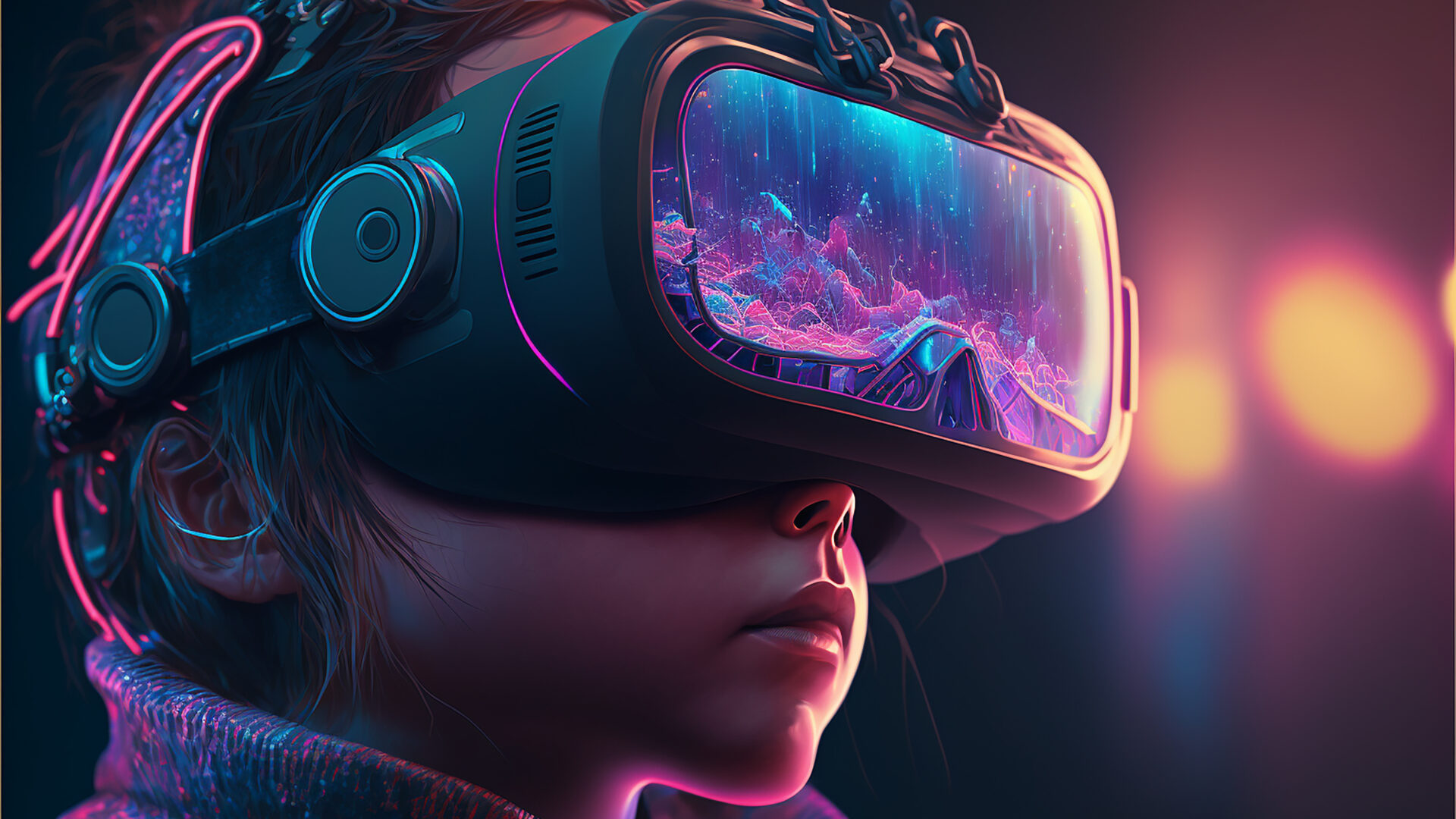The Revolution in the World of Web 3.0: How to Secure Contracts and Succeed in the New Era of the Internet?

Prepare yourself for a new era of the internet! What is metatalent and how can it change your career? In today’s interview, we enter the fascinating world of Web 3.0, where artificial intelligence algorithms connect the most talented professionals with lucrative contracts.
Discover the differences between Web 2.0 and Web 3.0, as well as the major challenges that creators must face. Is the metaverse already a reality? Learn how to harness the potential of this new world.
Daniel Haczyk: What is metatalent?
Mariusz Połeć: Hello, our company specializes in talent recruitment in the field of Web 3.0. We serve as a bridge that enables people to secure contracts in the Web 3.0 market. Through artificial intelligence algorithms, we match the best candidates to various roles. We define Web 3.0 as a wide range of professions that can be pursued with specific talents, ranging from creators to investors.
Daniel Haczyk: How long have you been operating, and what does your development look like?
Mateusz Smoliński: This question should be directed to Mariusz, as we are currently undergoing the process of migrating our company from Web 2.0 to Web 3.0.
Mariusz Połeć: Indeed, we have been involved in Web 2.0 for a long time, but for the past year, we have been transitioning to Web 3.0. We are already collaborating with several clients while simultaneously recruiting talents – professionals involved in content creation or being influencers. Our goal is to ensure that this migration process is as smooth as possible. There are many challenges, such as the fact that many creators are reluctant to accept payments in cryptocurrencies, which makes it difficult for them to collaborate with brands that are transitioning to Web 3.0. We aim to facilitate this process.
Daniel Haczyk: In which market do you primarily operate – Polish, European, or global?
Mariusz Połeć: Currently, we primarily focus on Poland, but our communication is international. A significant portion of our team is located in Poland, while our talents and clients have a strong global presence, which we plan to further scale.
Daniel Haczyk: In terms of talent, Poland and Eastern Europe are attractive in terms of both cost and quality.
Mariusz Połeć: Exactly. We must note that our currency is relatively weak compared to others, making us an attractive location for foreign productions. In Poland, we have a very good production infrastructure, and our teams often work on major projects for Hollywood or Netflix.
Daniel Haczyk: What are the differences between Web 2.0 and Web 3.0 in your work?
Mateusz Smoliński: I think Mariusz should answer that question.
Mariusz Połeć: Perhaps you can share your perspective, and I can add my thoughts later.
Mateusz Smoliński: In my interpretation, Web 2.0 is the era of Facebook and Google, while Web 3.0 is defined by ‘connect wallet.’ That, for me, is the most significant difference.
Mariusz Połeć: I agree. The fundamental difference arises when ‘connect wallet’ becomes crucial. Then the question arises: what is it, and how do we connect it with the reality of Web 2.0? We start with simple educational methods – from the basics. What is Bitcoin? What is a token? Why do we have the Solband token, for example? Why do tokens exist, and what purpose do they serve? When the community starts to understand this – not through the lens of traditional nomenclature like token, crypto, or NFT but through concepts like ‘digital asset,’ ‘membership,’ or ‘access token’ – the understanding becomes greater. We try to avoid vocabulary typically associated with Web 3.0, which is currently not positively received in Web 2.0 environments. Following Nike, which created its metaverse without using the word ‘crypto’ and built everything on the blockchain, we aim to introduce our protégés and companies to this new world. The process is lengthy and will not happen in one day, so we also want to be educators and evangelists. The difference is enormous, and it is not something that will happen in half a year. The migration will not be quick, especially since there is a lack of projects that communicate it in the right way. Therefore, we want to be that fresh breeze but speak about Web 3.0 to people from Web 2.0.
Daniel Haczyk: What are your thoughts on the metaverse, particularly in the context of your activities?
Mateusz Smoliński: I believe that the metaverse is currently overly promoted. In my opinion, it will only become truly useful in a few years. For now, we can utilize the metaverse for marketing purposes, but do we plan to use it in our company? Not at the moment.
Mariusz Połeć: The challenge is undoubtedly significant. It should be emphasized that Facebook has actually decided not to implement solutions on the Polygon. Tokens, NFTs, or strictly metaverse narratives will not be introduced there, despite the company’s name change. We see a trend of layoffs, but we must ask ourselves why. Perhaps, for some companies, even market giants like Mark Zuckerberg, attempting to enter the metaverse ends in failure. This shows us where we are in the market. It is not the time for mass actions but for research and finding the right communication. Maybe it’s worth emphasizing words like blockchain, Polygon, NFT less, as Facebook did, and find another way. I believe we are already in the metaverse. 3.5 billion gamers are already in the metaverse. My daughter, who creates assets for Roblox, is in the metaverse. She uses GPT chat to create and compose songs – she is in the metaverse. Technology increasingly surrounds us, often without us realizing it. Soon, phones may become obsolete, replaced by glasses, lenses, or neural links. We will become more immersed in this reality. For me, the metaverse is the implementation of technological solutions that will lead to a situation some call transhumanism. Humans will become multimedia, not just as users but also as creators. Therefore, we want to inform those creators who want to pursue this path that we have job opportunities. Content today is storytelling, and every brand needs it.
Daniel Haczyk: In the context of gaming, Web 3.0 can significantly disrupt the gaming economy. Asset exchanges and creators creating their own assets that are traded between different games can emerge.
Mateusz Smoliński: That is already happening. Markets are emerging, such as the Metapro project, which has built a marketplace for transferring assets between users. The question is whether the adoption of these technologies will occur within the next year or perhaps five years. Will players transition to using blockchain to transfer assets between themselves, set up wallets? Education is crucial here – it is a vital aspect of the relationship between blockchain and gaming.
Daniel Haczyk: The question is when the leading creators will start implementing these technologies. Imposition from the top is one thing, while grassroots initiatives are another.
Mariusz Połeć: I think creators, like many other industries, adopt solutions they see as valuable to them. If the solutions are tailored to trendsetters who can benefit from them, they will follow. It has to solve a specific problem, help someone, and provide an opportunity for earning. Most of the time, it’s about monetization. In Web 3.0, we see a strong trend of “play to earn.” People want to make money, acquire skills that allow them to do what they enjoy while gaining financial independence. Adoption will accelerate when leaders receive specific offers, products tailored to them that allow them to onboard large communities.
Mateusz Smoliński: The word “education” is crucial here.



![How Bitcoin Becomes a Lifeline for Victims of Repression and Financial Exclusion – Explains Lyudmyla Kozlovska [INTERVIEW]](https://webeconomy.info/wp-content/uploads/2023/10/Ludmila-Kozlowska-1000x500.jpg)


